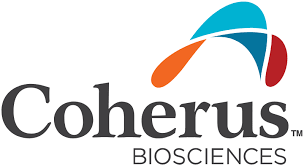- Bone Health
- Immunology
- Hematology
- Respiratory
- Dermatology
- Diabetes
- Gastroenterology
- Neurology
- Oncology
- Ophthalmology
- Rare Disease
- Rheumatology
FDA Approves Yusimry, the Seventh Adalimumab Biosimilar
Coherus BioSciences said the 40 mg subcutaneous formulation of adalimumab would be launched on or after July 1, 2023, in agreement with AbbVie, maker of Humira, the reference product.
The FDA has approved a seventh adalimumab biosimilar, Yusimry (CHS-1420) developed by Coherus BioSciences. The product references Humira, a tumor necrosis factor blocker, and was approved as a 40 mg subcutaneous formulation. It is indicated for plaque psoriasis, psoriatic arthritis, rheumatoid arthritis, juvenile idiopathic arthritis, ankylosing spondylitis, Crohn disease, and ulcerative colitis.
The Redwood City, California, company said that by arrangement with AbbVie, the maker of reference adalimumab (Humira), the product would not be launched until July 2023.
The 6 other makers of FDA-approved adalimumab biosimilars also have settled with AbbVie and also will delay launch until 2023. Two of these biosimilars also are launching in July 2023, another 2 adalimumab biosimilars in January and June 2023, and 2 after that, in September and November 2023.
Until now, Coherus’ sole product has been a pegfilgrastim (Udenyca), a colony stimulating factor that promotes white blood cell growth and is used in the treatment of neutropenia caused by cancer medications. Including Udenyca, there are 4 pegfilgrastim biosimilars on the US market.
“We are excited that Coherus has received FDA approval for Yusimry, our second approved product, and we are grateful to the patients and investigators who participated in our clinical trials and for the dedication of employees across all functions at Coherus,” said Denny Lanfear, CEO of Coherus.
Coherus said approval of the product was based on a randomized control study (N = 545) comparing efficacy and safety of Yusimry vs Humira in patients with moderate-to-severe chronic plaque psoriasis and also a double-blind randomized study to confirm pharmacokinetic similarity in 200 healthy subjects.
"The approval of Yusimry brings a new offering to health care practitioners and their patients with certain inflammatory diseases,” said Barbara Finck, MD, chief medical officer of Coherus.
Sales Potential
The company touted the sales potential of Yusimry, given that Humira is the world’s top selling drug and so far in the United States has no biosimilar competition. Humira had 2020 sales of roughly $20 billion globally and $16 billion in the United States.
Coherus also has an ophthalmology biosimilar under review with the FDA. This is CHS-201, which references Lucentis. The company is anticipating an FDA decision for CHS-201 in August 2022. An additional biosimilar candidate under development at Coherus is CHS-305, which references Avastin (bevacizumab).
Coherus reported 2020 sales of $476 million (mainly from Udenyca) and at the time said its pegfilgrastim biosimilar had a strong, 21% share of the overall pegfilgrastim market and a 50% share of the prefilled syringe segment. Coherus said that Udenyca together with the adalimumab and bevacizumab biosimilars would serve as the core of an immune-oncology portfolio.
The company also aims to commercialize a toripalimab product. This is a programmed death receptor-1 monoclonal antibody that prevents cancer cells from “switching off” the immune system response. This product was developed by Shanghai Junshi Bioscience of China, and Coherus is partnering with them on sales in the United States and Canada.
The FDA has granted breakthrough therapy designation to toripalimab for third-line treatment of nasopharyngeal carcinoma.
Newsletter
Where clinical, regulatory, and economic perspectives converge—sign up for Center for Biosimilars® emails to get expert insights on emerging treatment paradigms, biosimilar policy, and real-world outcomes that shape patient care.

